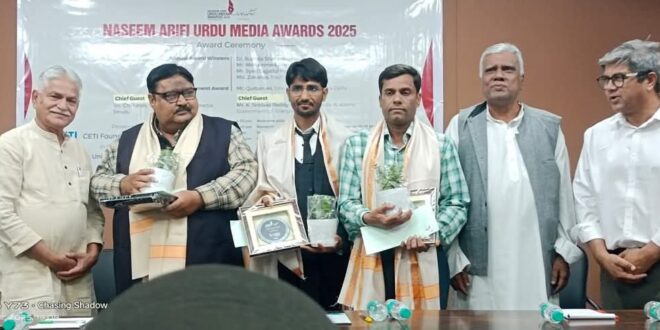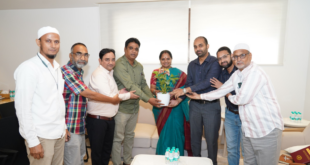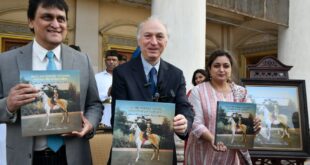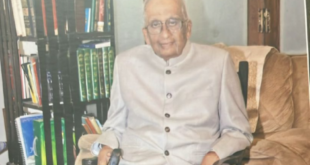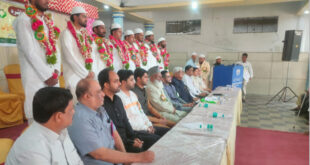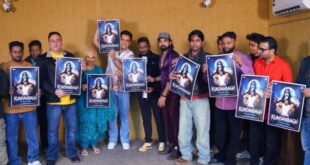Hyderabad 12 April – What began as a celebration of excellence in Urdu journalism quickly transformed into a critical forum on the future of the free press, as the inaugural Naseem Arifi Urdu Media Awards 2024 spotlighted growing concerns over political interference, digital disruption, and the uncertain place of traditional media in a converging information ecosystem.
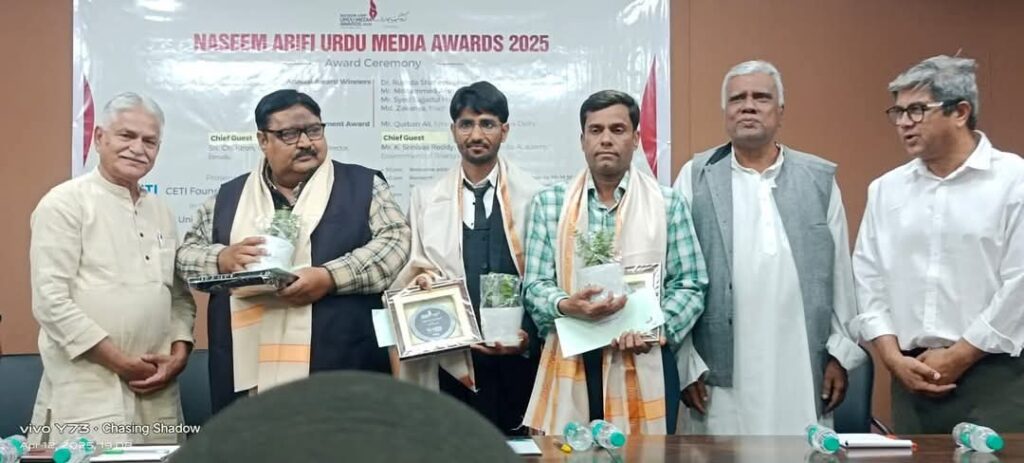
Held in memory of the late veteran journalist Naseem Arifi, the awards recognized the work of distinguished Urdu journalists from across the country. But beyond the honors, it was the conversations on stage that resonated deeply – raising alarms about shrinking editorial independence, the unchecked rise of social media, and the survival of Urdu journalism in an increasingly fragmented media landscape.
“Democracy is under pressure, and so is journalism,” said senior journalist Somasekhar Mulugu during a panel discussion. “What we’re seeing is not just a shift in platforms, but in power – where unregulated voices now compete with trained professionals, and corporate influence is quietly eroding editorial integrity.”
Organized jointly by the CETI Foundation, CDPP, and the Telangana Union of Urdu Working Journalists, the event was held in Hyderabad and moderated by noted economist and columnist Prof. Amir Ullah Khan. The gathering brought together a mix of senior journalists, editors, academics, and media observers.
The highlight of the evening was the Naseem Arifi Lifetime Achievement Award, conferred on Kurban Ali, a veteran journalist from New Delhi, for his decades-long contribution to Urdu journalism. Awards for excellence were presented to Dr. Rushda Shaheen (New Delhi), Dr. Mohammed Arshad (Hyderabad), Syed Sajjadul Hasnain (Hyderabad), and Md. Zakariya (Bihar). Each recipient was awarded ₹15,000, while the Lifetime Achievement Award carried a ₹50,000 cash prize, instituted by philanthropist Syed Basharat Ali, a close aide of Arifi.
But the mood remained focused on the shifting tides of media. Amin Jafri, journalist and legislator, emphasized the urgent need for self-regulation in digital journalism. “Social media has become a mirror to society’s worst instincts – and we have no framework to filter or fact-check,” he said. He advocated for expanding Urdu journalism into new formats like podcasts, multimedia platforms, and even English editions to keep the language relevant in modern discourse.
Despite the challenges, voices of optimism emerged. Syed Fazil Hussain Parvez, editor of Gawah, stressed that Urdu print media still holds credibility in the public’s eye – and is in fact seeing growth, partly due to digital accessibility.
Former Press Council of India member M.A. Majid paid a heartfelt tribute to Naseem Arifi, recalling his pioneering role in shaping editorial standards and his lifelong commitment to the Urdu press.
As the awards came to a close, one thing was clear: this was more than a ceremony. It was a call to action – for journalists, policymakers, and media consumers alike – to safeguard independent journalism in the face of rapid technological and political shifts.
 Gawah (The Witness) – Hyderabad India Fearless By Birth, Pristine by Choice – First National Urdu Weekly From South India – Latest News, Breaking News, Special Stories, Interviews, Islamic, World, India, National News
Gawah (The Witness) – Hyderabad India Fearless By Birth, Pristine by Choice – First National Urdu Weekly From South India – Latest News, Breaking News, Special Stories, Interviews, Islamic, World, India, National News

